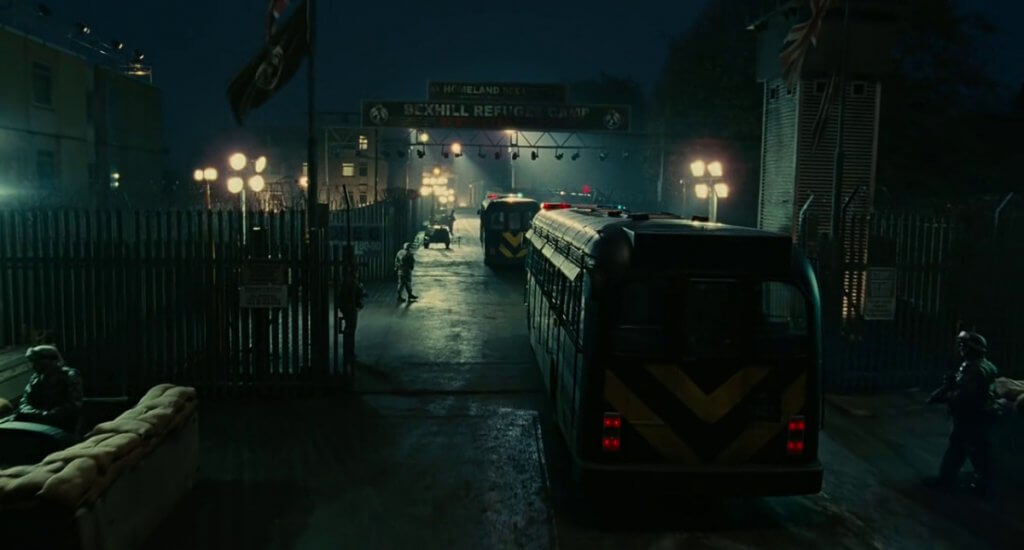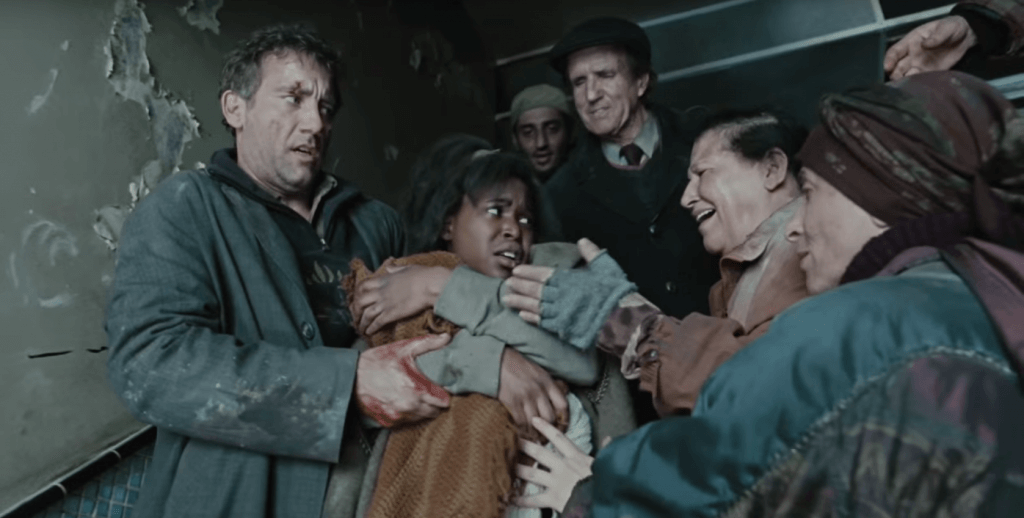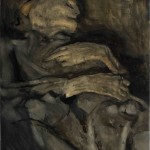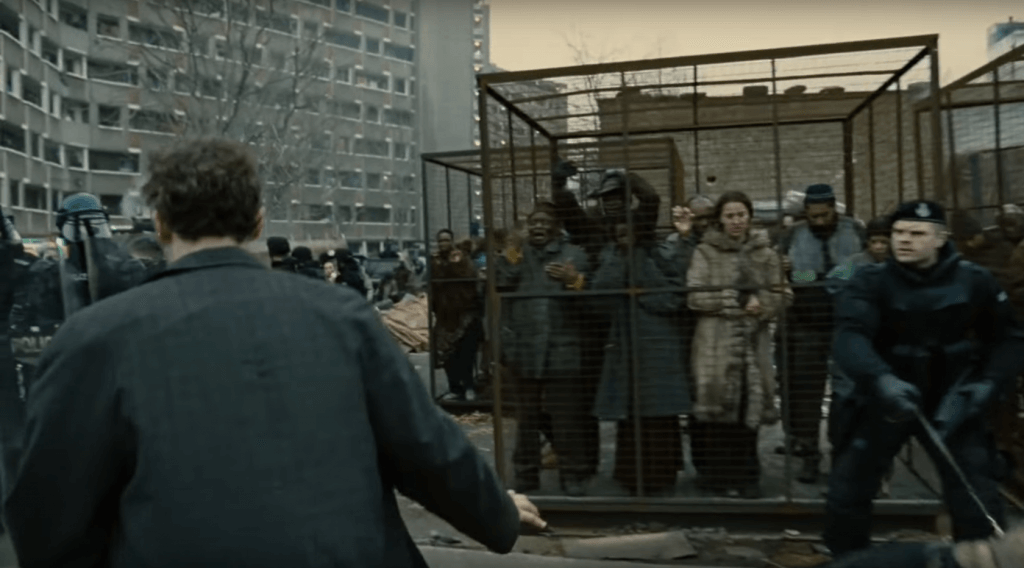News and Articles › Gripping Film Moments
Romanticism is the mother of kitsch and there are moments when the child becomes so like its mother that one cannot differentiate between them
— Hermann Broch, author
Top list
View the entire list
I thought I would be able to save this goldmine for later but I could not wait.
Alfonso Cuarón’s Children Of Men (2006) is one of the masterpieces of the 21st century and the front-runner of dystopic movies.
Why?
Because the world it presents us with could actually come true.
It is London anno 2027 – babies have not been born in 18 years due to infertility – and the world (except for Great Britain) is in total chaos.
Our hero – faithless Theo Faron is unwillingly dragged into the dealings of an activist group by his estranged wife – Julian – who is smuggling a pregnant refugee out of the country and taking her to The Human Project’s location on the Azores.
But getting thus far… is hell on earth.
The plausibility of the story is enhanced by the 6-7 minute long takes and the fact that the main character is stalked by the cameraman throughout the movie!
Seriously… Theo Faron has rarely any time off-screen and appears in every scene.
Black Swan and the recent film Saul’s Son both carry out the same trick – but Children Of Men achieves this narrative par excellence and the director has gone a long way to sustain it.
Take a look at Jasper’s death or the scene where The Fishes are plotting to kill the lead character. Although necessary – it is remarkable that Theo is eye-witness in both incidents.
The Epilogue
Children Of Men is packed with moments but the ending is what triggers the tears and I have cried many a time watching the final minutes of this film – crowned by John Tavener’s excellent film score.
After Theo rescues Kee and her baby from The Fishes in a barricaded refugee camp building – expatriates and military cease combat. For a moment everyone forgets the harsh reality around them and stare in wonder at the human infant.
None of them have heard child cry in decades.
A friend of mine – the painter Ksenia Levina – pointed out to me the similarity this scene has with the ending of Downfall. But unlike the German WWII movie – Quarón’s film goes even further.
After fleeing the refugee camp with the girl and her newborn child – Theo Faron has undergone a change of character.
In the midst of all tragedy Theo restores his own faith and as his life fades away in the rowing boat – he cathartically transmits his knowledge to the young mother.
And there went my emotional guard. It is such a pathetic moment!
As the baby stops crying – Theo dies – and a ship appears out of the mist that will take Kee and her child into an uncertain future.
Unfortunately this ending clip does not include the farewell with the gypsy girl Marika who helps them into a boat but regardless – you must watch the whole movie!
A sidenote
It is worth having a look at the structure of this film and how Theo Faron’s psychological growth drives the story forward to its conclusion.
In the first half of the movie we learn that Theo had a son that died in a flu pandemic in 2008. This is not just a mirror of the current situation he finds himself in – where women cannot make babies anymore – the loss of his son has defined him.
The chaos around Theo is just the backdrop – ok sure – he is almost blown up by a street bomb in the opening scene but the memory of his son is the root cause of his feeling of purposelessness.
Let us take a look at Children Of Men summed up in Aristotle’s three stages of drama:
Thesis: Theo has lost all faith. Women are infertile and cannot make babies anymore.
Antithesis: Theo is hopeful. Women are not infertile – a refugee girl is pregnant!
Synthesis: Theo regains his faith. The first child in 18 years has been born.
And all this can be traced back to his own loss. But it is not just the lead role’s psyché that creates the feeling of fulfillment in the story.
Notice how Theo passes cages of illegal immigrants early on and how the thesis is answered in the last third of the film when Theo finds himself in a huge refugee camp.
The stakes have been raised and the cage has swollen.

Theo arriving with bus at Bexhill Refugee Camp.
The indications from the theme setting first minutes of the film have been answered!
The lead role – Theo Faron – is not a typical hero. He is an ordinary guy finding himself in extraordinary situations! The late script writer Blake Snyder has eloquently laid the foundation for the genre he calls Dude with a problem – and without a question – Children Of Men falls into this category.
Arguably it is also a genre that the audience can relate to more than any other form of storytelling.
As a final remark I want to argue that this is not a political movie even though it covers present-day political issues.
On the whole it is a story about individuals in a chaotic landscape where the human drama is the main focus.
Published on Saturday, October 22nd, 2016






